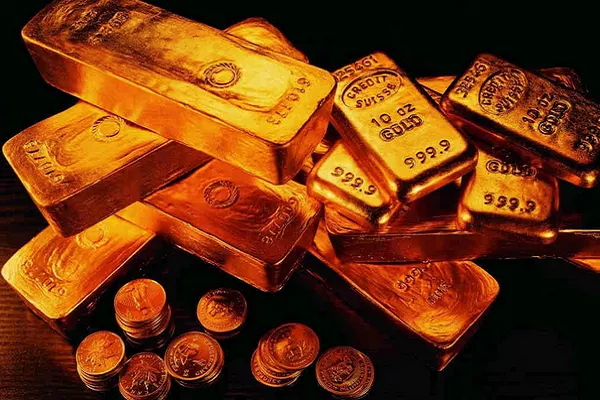Gold has long been a symbol of wealth and value, and trading gold futures allows investors to participate in this valuable commodity without the need for physical ownership. To engage in gold futures trading, one must access a commodities exchange that facilitates these transactions. Several exchanges worldwide offer gold futures contracts, each with its unique characteristics and advantages. In this article, we will explore and compare some of the prominent gold futures exchanges globally, including the Chicago Mercantile Exchange (CME), the Tokyo Commodity Exchange (TOCOM), and more.
1. Chicago Mercantile Exchange (CME)
Overview
The Chicago Mercantile Exchange, often referred to as CME, is one of the largest and most recognized derivatives exchanges globally. CME offers a range of gold futures contracts, including the COMEX Gold Futures, which are widely regarded as a benchmark for gold prices worldwide. These contracts are physically settled, meaning that they result in the delivery of actual gold if held until expiration.
Advantages
CME’s robust infrastructure and liquidity make it an attractive choice for gold futures trading. Its contracts are popular among institutional investors and speculators alike, offering a high level of market transparency.
2. Tokyo Commodity Exchange (TOCOM)
Overview
TOCOM is Japan’s primary commodity futures exchange and provides a platform for trading various commodities, including gold. Gold futures contracts on TOCOM are financially settled, meaning they do not result in the physical delivery of gold. TOCOM’s Gold Rolling Spot Futures contract is a notable offering, allowing investors to speculate on the price movements of gold without handling physical delivery.
Advantages
TOCOM’s Gold Rolling Spot Futures contract is designed for investors seeking exposure to gold’s price movements without the complexities of physical delivery. The exchange is well-regulated and known for its stability.
3. Multi Commodity Exchange (MCX) – India
Overview
MCX is India’s largest commodity futures exchange, offering a vibrant market for gold futures trading. Gold futures contracts on MCX are cash-settled, making them a popular choice for investors in India and beyond. MCX Gold Mini and MCX Gold Petal are among the prominent contracts available.
Advantages
MCX provides a convenient platform for investors interested in participating in the gold market, particularly in India, where gold holds cultural and economic significance. The contracts offered are accessible to a wide range of traders.
4. London Metal Exchange (LME)
Overview
While the London Metal Exchange (LME) is renowned for metals trading, it also offers gold futures contracts. The LME Gold contract is a physically settled contract, with bars of gold conforming to London Good Delivery standards being the deliverable. LME Gold is known for its focus on quality and is traded in London’s bullion market.
Advantages
LME’s gold futures contracts are recognized for their adherence to strict quality standards. The exchange’s reputation in the metals industry adds to the credibility of its gold contracts.
5. Shanghai Gold Exchange (SGE)
Overview
The Shanghai Gold Exchange (SGE) is the world’s largest physical gold exchange. It primarily facilitates the trading of physical gold and related products but also offers gold futures contracts. SGE’s gold futures contracts are settled in physical gold and are traded in both the domestic and international markets.
Advantages
SGE’s position as a major player in the global gold market makes it a crucial exchange for gold futures trading. It provides access to the Chinese gold market, which is a significant contributor to global demand.
FAQs on Gold Futures Exchanges
Q1: What is the difference between physically settled and cash-settled gold futures contracts?
Physically settled contracts result in the delivery of actual gold if held until expiration, while cash-settled contracts are financially settled and do not involve the delivery of physical gold. Investors choose between these types based on their trading preferences and the need for physical possession of gold.
Q2: Which gold futures exchange is best for individual investors?
The choice of exchange depends on individual preferences, access, and trading goals. CME and MCX are accessible to a wide range of traders, while TOCOM may appeal to those seeking a financially settled contract. Consider factors such as liquidity, regulation, and contract specifications when making a decision.
Q3: Are gold futures exchanges regulated?
Yes, gold futures exchanges are typically regulated by financial authorities in their respective countries. These regulations are in place to ensure fair and transparent trading practices, protect investors, and maintain the integrity of the market. Investors should verify the regulatory status of an exchange before participating in trading.
In conclusion, gold futures exchanges offer diverse opportunities for investors to engage with the precious metal. The choice of exchange depends on various factors, including trading preferences, access, and the level of exposure to physical gold desired. Each exchange has its unique advantages and characteristics, making it essential for investors to conduct thorough research and select the one that aligns best with their investment goals and strategies.


